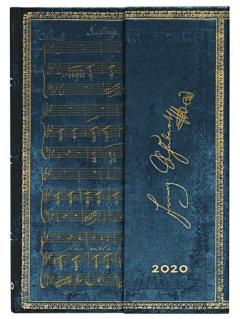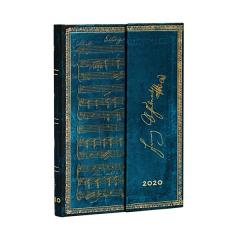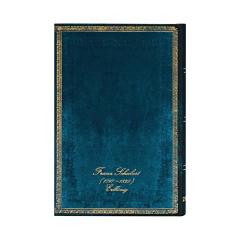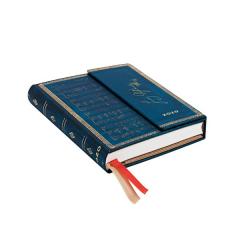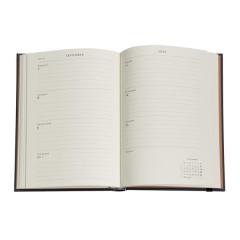Franz Schubert was born in Austria to a musical family who imbued him with a love of the lied – a 19th-century style of German art song. In 1831 his musical adaptation of Goethe’s Der Erlkönig, reproduced here, was staged in a celebrated performance. It remains one of the most popular lieder composed during this time.
Franz Peter Schubert (1797–1828) was born in Austria to a musical family who imbued him with a love of the “lied” – a 19th-century style of German art song. It was his appreciation for this artistic form that led Schubert to bring the poetry of Goethe to the stage.
For our Embellished Manuscripts Schubert cover we chose to reproduce his handwritten Der Erlkönig (1815) score, the first composition to earn him some recognition. Until this point, success had not come easily to Schubert. He trained under Antonio Salieri and surrounded himself with talented friends, but was a part of the Viennese art scene without being a star. He was extremely prolific during his short life, composing over six hundred secular vocal pieces and seven complete symphonies, yet his work was left vastly unpublished and underperformed. It wasn’t until 1831, when the prominent baritone Johann Michael Vogl brought to life Schubert’s complex and riveting Der Erlkönig, that his work for the stage began to be noticed and celebrated.
This musical piece features the poem written by Johann Wolfgang von Goethe, itself an adaptation of an old Scandinavian folktale about a father whose son dies. The deep emerald hue of our cover symbolizes the tragedy and the sinister character of the enchanted forest. Der Erlkönig remains one of the most popular lieder composed during the time, with its dramatic content and eloquent piano figurations of the furious and ceaseless horse’s gallop.
Schubert died at the young age of thirty-one, too soon to see the impact his compositions would have. During his life appreciation of his music was limited to a small circle of admirers in Vienna, but in death interest significantly increased. Composers like Mendelsohn, Liszt and Brahms were all champions of his work. However, despite setting many of Goethe’s poems to his music, Schubert never received any acknowledgement from the great Romantic poet.
Today, Franz Schubert is ranked among the greatest late-Classical, early-Romantic composers. His appetite for experimentation may have been too cutting edge for audiences of his day, but it truly set the stage for the bold and inventive artists who followed.

